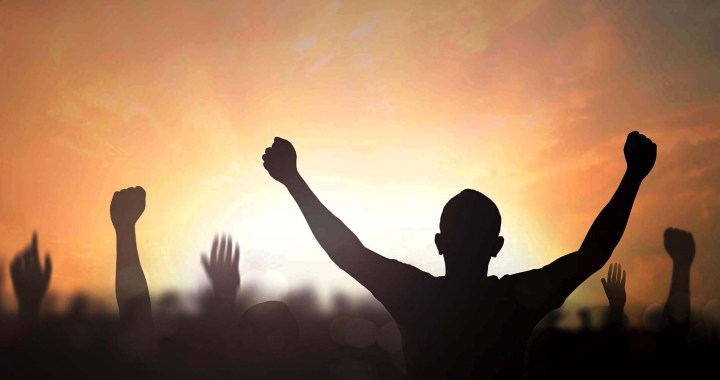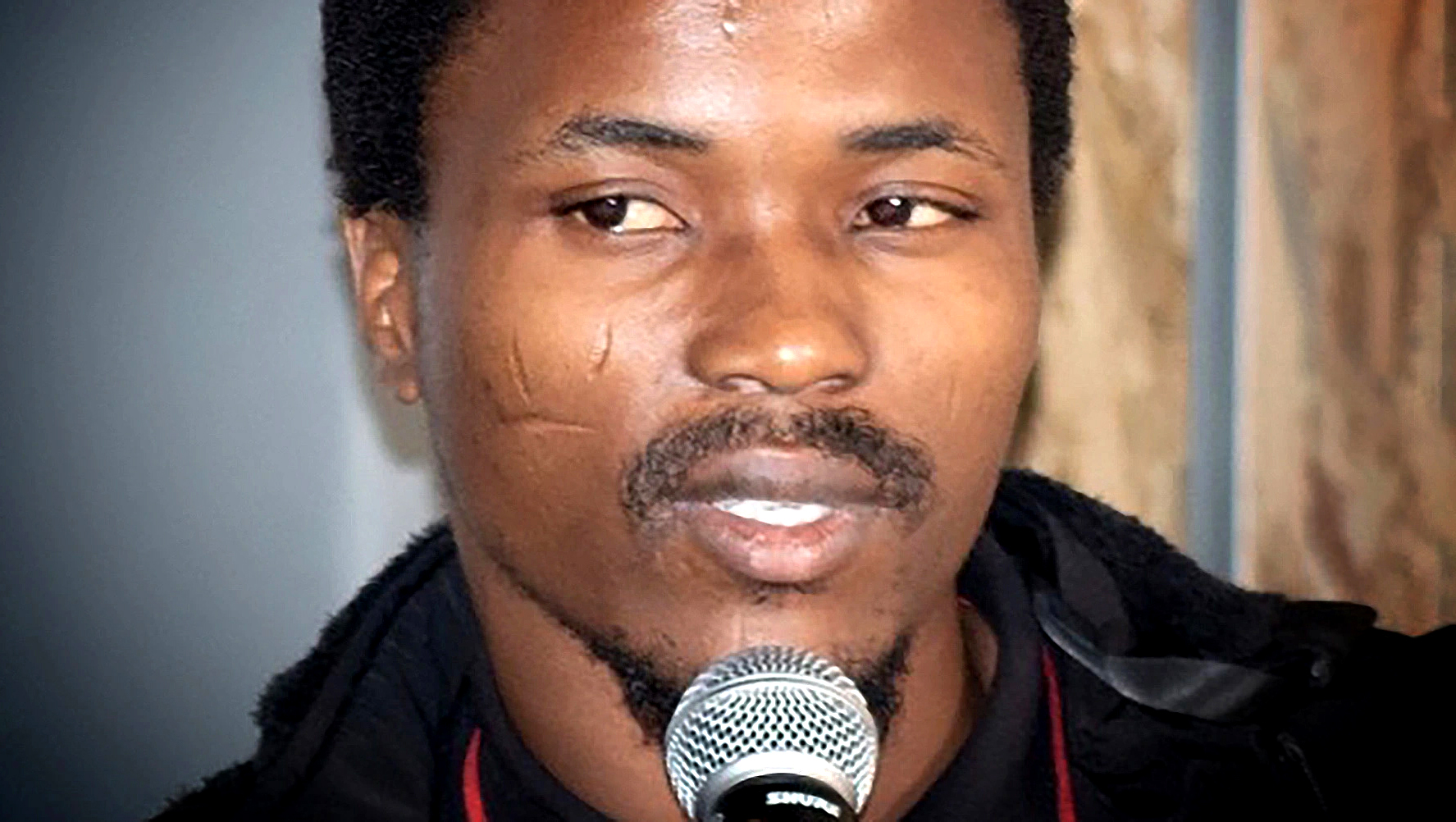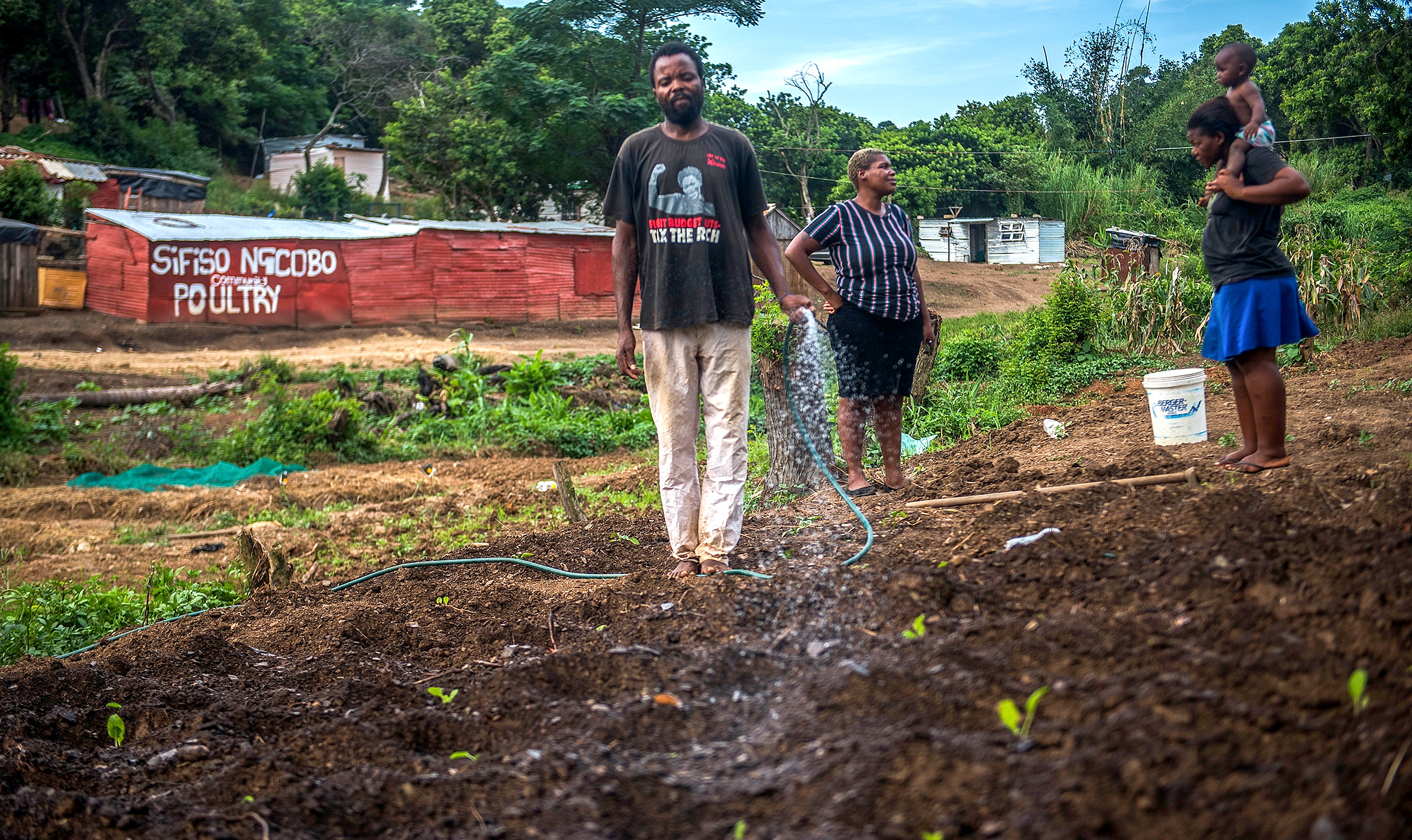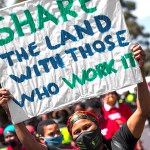SOCIAL SOLIDARITY OP-ED
The Abahlali baseMjondolo experience exposes South Africa’s shrinking democratic space

Democratic spaces vital for rights-claiming and holding political leaders accountable have increasingly come under threat in South Africa. Social movements, groups and communities that have dared to organise themselves around a cause that is critical of the state have often been met with blunt force.
Abahlali baseMjondolo’s experience since its emergence in 2005 shows how the South African state has failed to fully embed democratic principles that embrace a plurality of ideas, that fully appreciate dissent as healthy and that uphold a commitment to dignity, equality and freedom of all people.
The Socio-Economic Rights Institute of South Africa has recently published a Community Practice Note documenting Abahlali baseMjondolo’s 17-year history since its formation, culminating with the recent assassination of eKhenana Commune chairperson, Lindokuhle Mnguni, who was 28 years old when he was killed. The publication documents the movement’s strategies and tactics for advancing their objectives of accessing land, housing and basic services and how it has survived repeated and varied forms of state violence, costing the movement 24 lives since 2009. It tells a story of how Abahlali has responded to evictions and repression in a highly charged political context, and the price it has paid for organising outside of formal politics and challenging the state.

Lindokuhle Mnguni, the Abahlali baseMjondolo chairperson of the eKhenana Commune who was recently killed. (Photo: Abahlali baseMjondolo)
Of the 24 people who have died, six were killed during the course of policing operations concerning protests or evictions carried out either by the South African Police Services, eThekwini municipality’s Anti-Land Invasion Unit or private security. For example, two-week-old baby Jaydon Khoza died in May 2017 after inhaling teargas in his home in the Foreman Road settlement in Durban. The police had responded to a road blockade by throwing teargas into the settlement.
In September 2013, Nkosinathi Mngomezulu was shot in the stomach four times by a security officer in the Anti-Land Invasion Unit as he physically resisted the unlawful demolition of his shack in Cato Crest, Durban. He spent three months recovering in hospital and was then arrested and detained on charges of assault and later attempted murder. Mngomezulu died in 2021 from medical complications related to the injuries he sustained in the 2013 shooting.
The remaining 18 Abahlali members who lost their lives were killed in politically motivated attacks or because they were targeted and assassinated. In September 2014, Thuli Ndlovu was shot and killed in her home after being repeatedly threatened by the local KwaNdengezi ward councillor for exposing corruption related to housing in the area. Ndlovu was the chairperson of Abahlali’s KwaNdengezi branch. Two members of the African National Congress (ANC) and the hired hitman were convicted for Ndlovu’s murder.
In May 2018, S’fiso Ngcobo was shot and killed by unknown gunmen at a store near his home in eKukhanyeni, Mariannhill. Ngcobo was a highly respected leader in the community and was the chairperson of Abahlali’s eKukhanyeni branch.
Later that year in December, another prominent Abahlali leader and resident of Abahlali’s eKhenana branch, Senzo Gumede, was shot and killed by unknown gunmen. He often led road blockades in the area. He too had been threatened several times by the local ANC ward councillor and taxi owners. Gumede is the first person to be killed in connection with eKhenana, a settlement established in 2018 following the exclusion of backyard tenants from the upgrade of the Cato Manor settlement.
Visit Daily Maverick’s home page for more news, analysis and investigations

The cold-blooded murder of Abahlali baseMjondolo leader Ayanda Ngila is an assault on South Africa’s democracy, Constitution and on every one of us. (Photo: Facebook)
Since Gumede, at least seven more people have been killed in eKhenana, three of whom were killed in 2022 alone. In March 2022, eKhenana deputy chairperson Ayanda Ngila was gunned down in the settlement. In May, prominent eKhenana leader and devoted member of Abahlali’s Women’s League, Nokuthula Mabaso, was shot and killed in front of her home in eKhenana. In August, Lindokuhle Mnguni was shot and killed in his home the night he briefly returned after having spent months in hiding. All three leaders were part of about a dozen Abahlali leaders from eKhenana who were arrested in 2021 and 2022 on various charges ranging from murder, conspiracy to commit murder and assault. So far, none of the prosecutions have resulted in a conviction.

Nokuthula Mabaso was shot dead in front of her children at her home in the informal settlement of eKhenana where she was an activist. (Photo: Supplied by GroundUp)
The heightened harassment of eKhenana this year has been a continuation of a series of attacks and harassment. Between 2018 and 2020, eKhenana endured at least 30 evictions. The eThekwini municipality and its contracted security agency, Calvin Family Security Services, would carry out unlawful evictions despite existing interdicts against further evictions secured in 2018 and 2019 and even during the Covid-19 lockdown in 2020, when a national moratorium on evictions was in effect. Abahlali and eKhenana residents managed to secure a settlement with eThekwini after filing an urgent application in the high court for an interdict, contempt and compensation for the damage to their property. Ekhenana was home to over 100 families but has now shrunk considerably following the recent attacks.

Community members in their garden. They each have turns working in the garden. Vegetables produced in the garden are distributed among community members and sold to generate an income. (Photo: Shiraaz Mohamed)
The eKhenana settlement is organised as a cooperative in which residents collectively run a communal kitchen and tuck shop, and care for a subsistence vegetable garden named after the late Nkululeko Gwala as well as a poultry farm named after the late S’fiso Ngcobo. Nkululeko Gwala is another prominent Abahlali leader in the Cato Crest branch who was assassinated in 2013. He too had received several death threats. The Commune is also home to a political school that residents named the Frantz Fanon School, as well as the Thuli Ndlovu Community Hall. So eKhenana exists as a living ode to Abahlali baseMjondolo’s fallen leaders who stood and died for the rights to land, basic services and to live with dignity for poor people living in informal settlements.
But why the violence? Since its formation, Abahlali has dedicated itself to a radical land reform project that insists on the de-commodification of land and for its distribution and use based on need. eKhenana is an example of Abahlali’s vision and so the Commune is an obstacle to vested interests in the piece of land on which the settlement is located. Abahlali’s conscientising, organising and mobilising of poor people outside formal party politics has been perceived as a threat to local leaders. They are also vocal about the failures of the ANC government. They live with the constant threat of danger, knowing that they could be targeted, forced from their homes, arrested arbitrarily, beaten, or killed.
Abahlali’s experience exposes the limits and opportunities of South Africa’s post-1994 democratic environment. On the one hand, the movement has been able to draw on South Africa’s constitutional prescripts and use existing legislation to assert the socioeconomic and civil and political rights of informal settlement residents. However, on the other hand, neither court judgments in their favour nor other protections in the Constitution have shielded it or its members from state-sanctioned or politically motivated covert and overt uses of force. At a time of increasing intolerance for divergent ideas that challenge dominant interests, civil society and allied groups have an obligation to demonstrate what Abahlali calls “living solidarity” with those facing the greatest risk. Such solidarity is an act of defending South Africa’s democracy. DM/MC
Thato Masiangoako is a researcher at the Socio-Economic Rights Institute (Seri).
On Wednesday, 19 October 2022, at 3pm, the Anti-Repression Collective is hosting a solidarity webinar with movement leaders from around the world.
Register here: https://us02web.zoom.us/webinar/register/WN_NjdMP0OZRaCZ0HHU8qKidQ




















 Become an Insider
Become an Insider
Comments - Please login in order to comment.